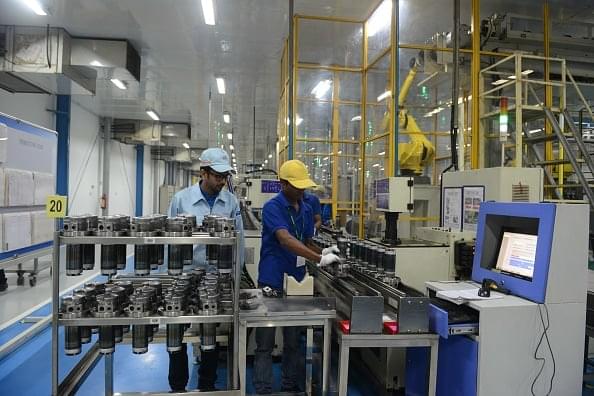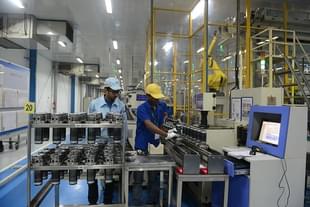News Brief
Third Phase Of PLI Scheme For White Goods: 24 Companies Including 10 AC Manufacturers Commit Rs 3,516 Crore Investment
Arjun Brij
Jan 20, 2025, 03:36 PM | Updated 03:36 PM IST
Save & read from anywhere!
Bookmark stories for easy access on any device or the Swarajya app.


The Ministry of Commerce and Industry has announced a significant boost to the Production-Linked Incentive (PLI) Scheme for White Goods, with 24 beneficiaries committing investments of Rs 3,516 crore in its third round of applications.
This move is set to strengthen India’s position in the global supply chain by enhancing domestic manufacturing capabilities for air conditioners (ACs) and LED lights.
The Ministry revealed that in the third round of the scheme's online application process, 38 applications were received.
After a thorough review, 18 new companies were provisionally selected, including 10 AC component manufacturers and eight LED light manufacturers, with a combined investment commitment of Rs 2,299 crore.
Furthermore, six existing beneficiaries have upgraded to higher investment categories, bringing an additional Rs 1,217 crore in investments.
13 applications, including two from existing participants, are being referred to the Committee of Experts (CoE) for further evaluation and recommendations. One applicant has opted out of the scheme.
Since its inception, the PLI Scheme for White Goods has attracted 84 companies, committing investments of Rs 10,478 crore, with an estimated production value of Rs 1,72,663 crore.
The scheme aims to boost India’s manufacturing capabilities, particularly in critical components for air conditioners, such as compressors, copper tubes, heat exchangers, BLDC motors, and control assemblies.
For LED lights, it will support the domestic manufacturing of LED chip packaging, drivers, light management systems, and other components.
Launched in April 2021 with a budgetary outlay of Rs 6,238 crore, the PLI Scheme is set to run from FY 2021-22 to FY 2028-29. It offers incentives ranging from 6 per cent to 4 per cent on incremental sales over a five-year period, following a base year and one year of gestation.
The scheme aims to increase domestic value addition from the current 15-20 per cent to 75-80 per cent, thereby reducing dependency on imports and positioning India as a global manufacturing hub for white goods.
Arjun Brij is an Editorial Associate at Swarajya. He tweets at @arjun_brij





